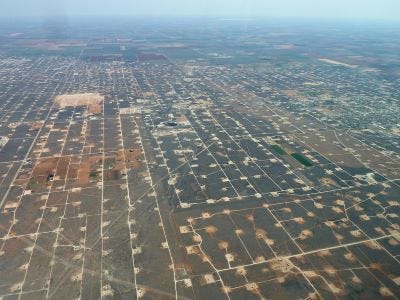

Discover more from Life in the 21st Century
Shale
As oil nears the magical $100 a barrel price, the Wall Street Journal unprecedentedly publishes a piece on the limits of shale. The price is magic because the presently structured global economy doesn't run on a $100 barrel. Sisters and brothers, as someone who has followed the industry for decades, and shale since its inception, I've never seen such a piece in any of the financial press. I'd say it's important, but that's not really true, the only thing that will stop America's oil addiction is high prices. They are coming.
“Oil Frackers Brace for End of the U.S. Shale Boom,” the WSJ writes. Phew! Can't get more declarative than that, especially with a topic the Journal's promoted the exact opposite stance for a dozen years, sounding more like the North Dakota and Texas Chambers of Commerce, or, I guess, like Wall Street banks shilling shale bonds.
“Less than 3½ years after the shale revolution made the U.S. the world’s largest oil producer, companies in the oil fields of Texas, New Mexico and North Dakota have tapped many of their best wells.”

“Many are holding back on increasing production, despite the highest oil prices in years and requests from the White House that they drill more.” Obama and Trump will be the only shale presidents. Anytime talking about American politics of the last dozen years, those two names should be much more entwined. No one ever said luck didn't play a big part in political life. Poor old Joe gets stuck footing the bill, “Biden Administration Announces $1.15 Billion for States to Create Jobs Cleaning Up Orphaned Oil and Gas Wells.”

The Journal continues, “The limited inventory suggests that the era in which U.S. shale companies could quickly flood the world with oil is receding, and that market power is shifting back to other producers, many overseas.” This last part is questionable. How much extra global supply exists for pricing power is unclear. The Sauds have a couple million barrels and maybe the Russians, beyond that it gets a little murky. One certainty, no new supply will be cheap, shale wasn’t cheap.
The American shale boom was maybe the last great industrial project, and looking from only that perspective, it was spectacular. From an environmental, economic, or need to change perspective, shale was a complete bust. With less than 5% of the world's population, the US uses 21% of global oil supply on a daily basis. Fifty years ago, when it became clear oil was a limited resource, we did less than zero to cut our oil use. No issue more exemplifies the dysfunction of American politics, including our corporations, government institutions, political class, and not least, the American citizenry.
Subscribe to Life in the 21st Century
History, Science, Energy, Technology, Environment, and Civilization






